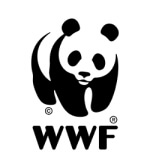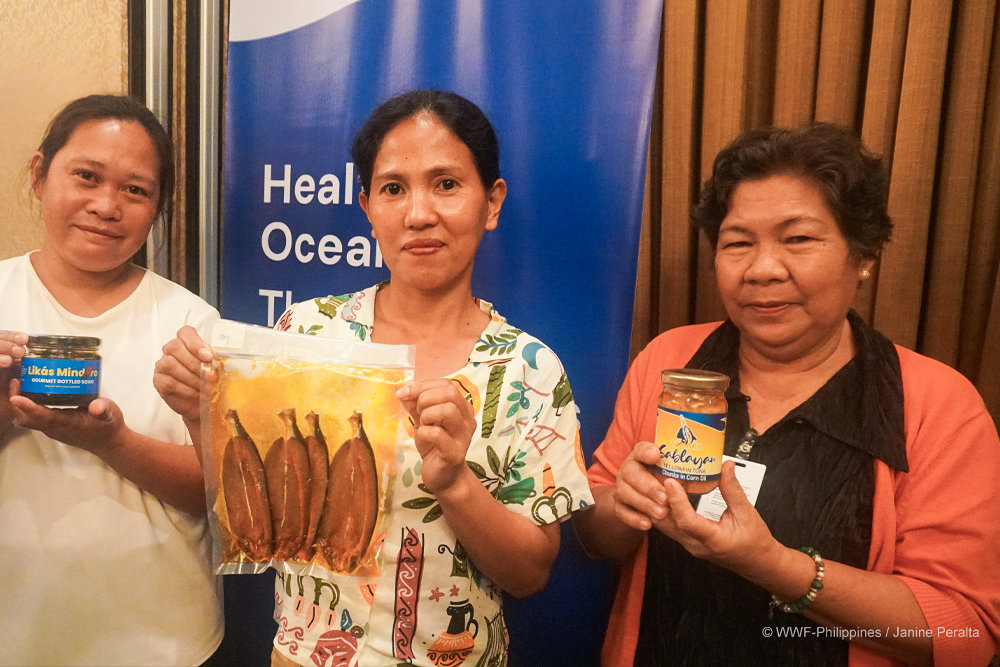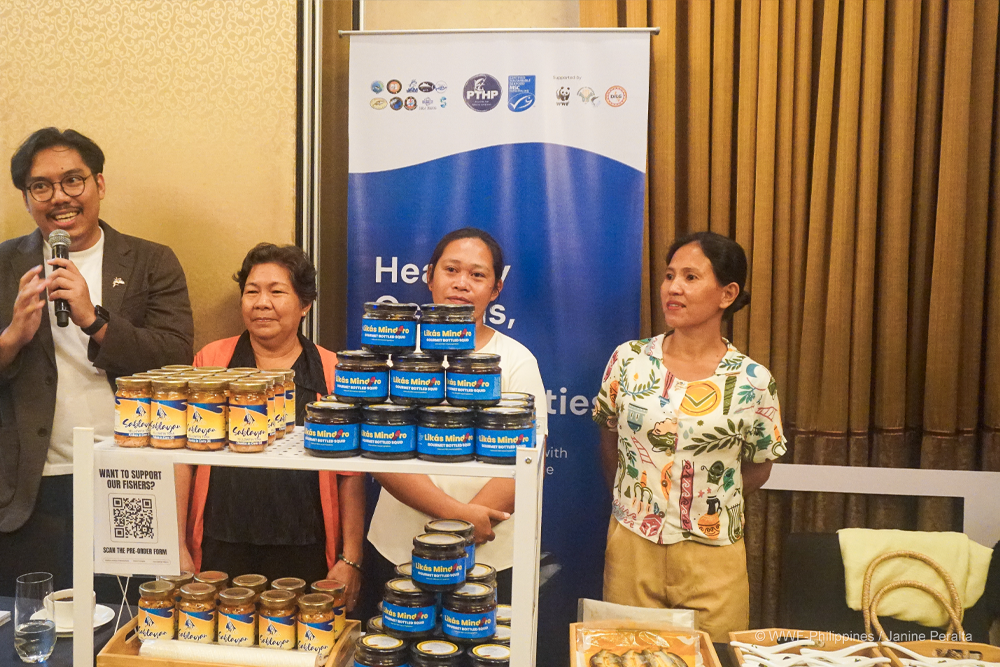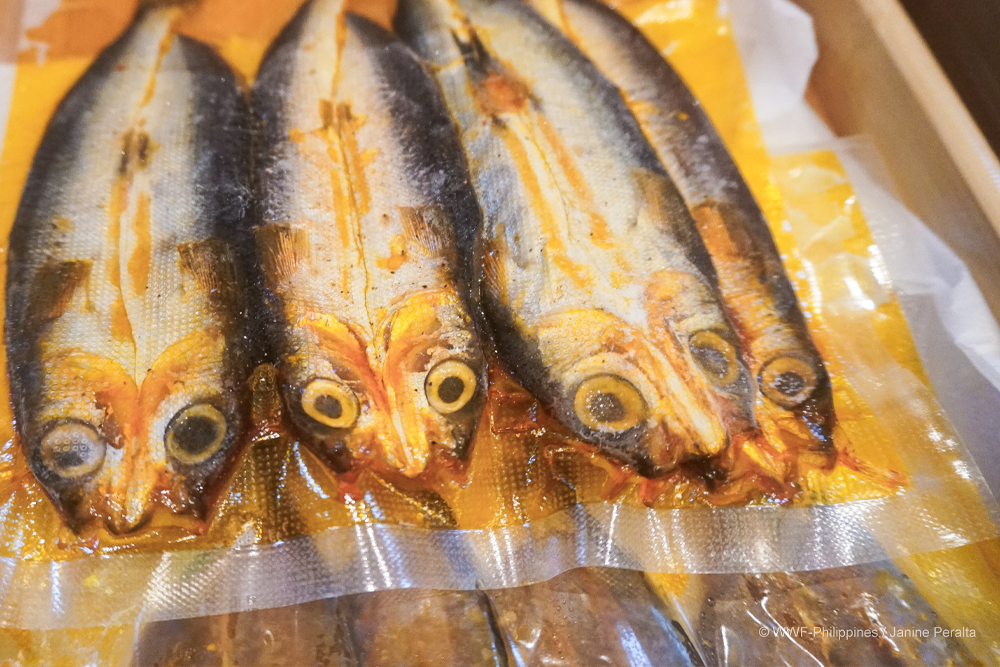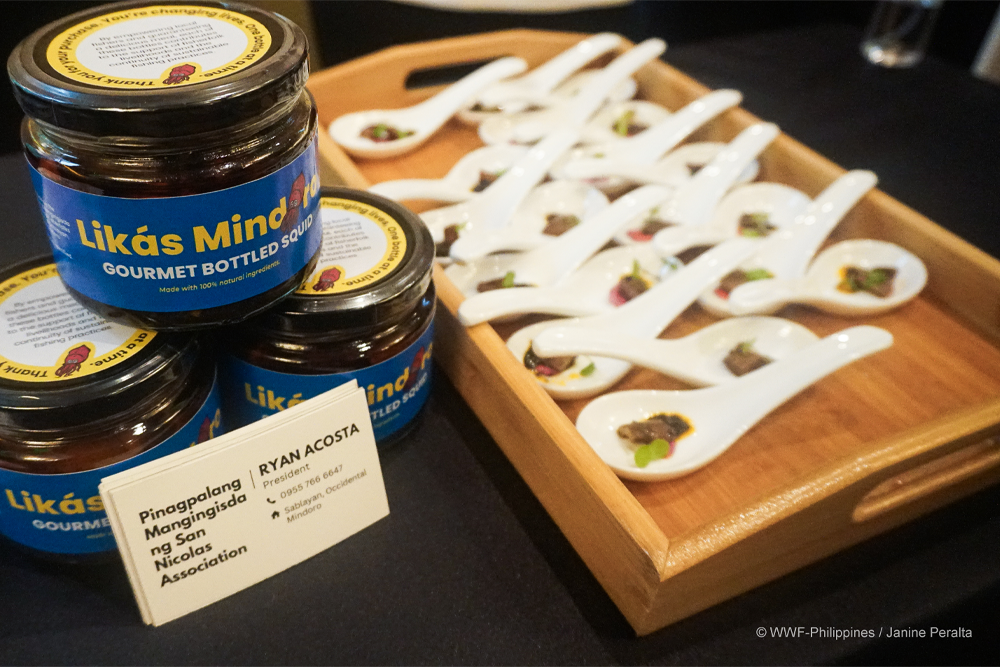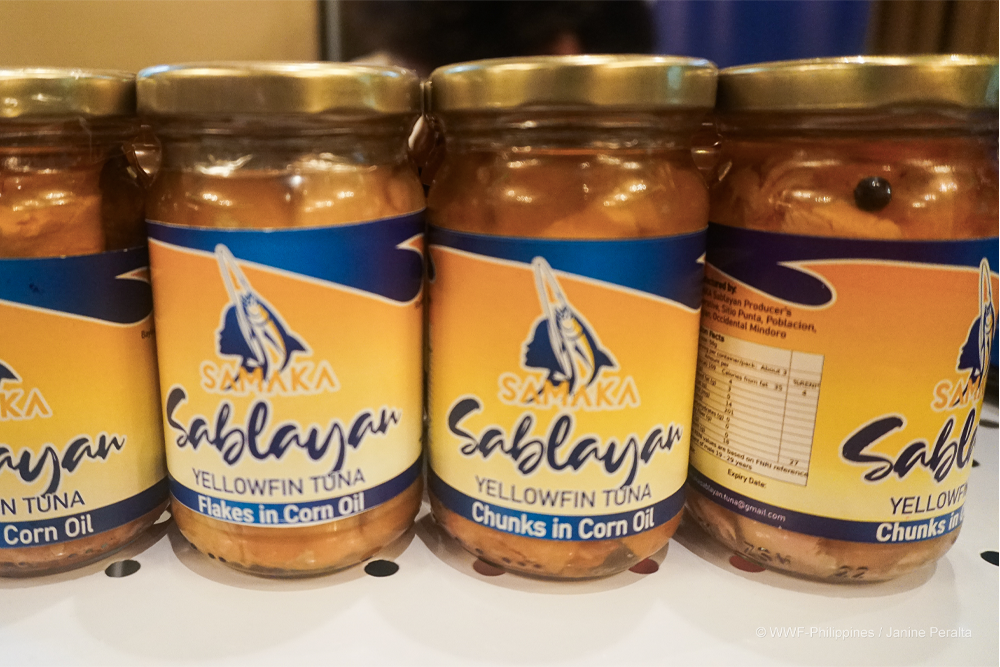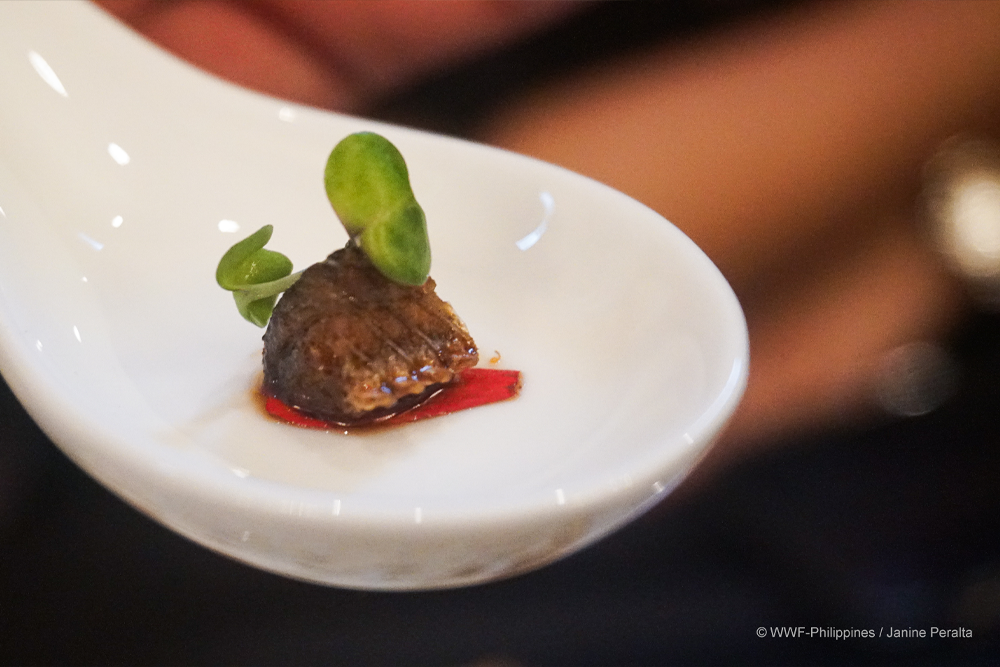WWF-Philippines’ partner women fisherfolk in Occidental Mindoro showcased their sustainably-sourced seafood products at a summit with organizations in the hotel, restaurant, and catering (HORECA) industry.
Pasay, Metro Manila – The SeaTrace International-sponsored “Sustainability Movement Event 2024: Towards a Sustainable Future of our Food Systems” event was held on October 22 at the Marriott Hotel with an exhibit of booths from different organizations championing sustainability in fisheries, agriculture, and other food systems.
During the program, WWF-Philippines presented the Solving the Great Food Puzzle: Place-based Solutions to Scale National Action study, which emphasized the importance of a sustainable food systems strategy that is based on a country’s local context.
“With many proposed solutions, confusion arises about which are most effective. The (Great Food Puzzle) series aims to clarify this complexity by using science to identify impactful local solutions, focusing on country and landscape context,” says Melody Melo-Rjik, who led the study for the Philippines. She is also the Project Manager for WWF-Philippines’ Project Buhay: Tuna Habambuhay, Dagdag Hanapbuhay.
WWF-Philippines’ booth displayed the processed products from its Project Buhay initiative which supports tuna fishing communities in improving their product quality and post-processing to earn more from their catch and reduce tuna wastage.
Their products include bottled squid, yellowfin tuna, and dried flying fish, as part of the project’s alternative livelihood component. The partners sell the products all-year-round, ensuring their income during the tuna off-season.
Janice Rabe was among the partners who attended the event to show her processed flying fish, a staple in her hometown of Barangay Ligaya in Sablayan, Occidental Mindoro. Rabe is a member of the Ligaya Flying Fish Catchers and Workers Association set to receive freezers and storage equipment from Project Buhay, alongside regular training sessions on food safety, catch processing, and even financial literacy.
Rabe shares that before Project Buhay, the community relied on middlemen who would appraise their products relatively low on top of taking a cut from the earnings. With WWF’s support, Rabe says she and other members are on their way towards full independence and the prospect of earning more to support their families.
“Mas madali na makaipon kasi ‘yung price niya may justice na talaga. Dati wala,” she shares. “Noon parang wala lang…pero mayroon pala na mas madedevelop pa ang hanapbuhay. Mas naenhance (yung pananaw ko) na may opportunity pa pala tayo.”
[Translation: It’s easier for us now to save money because the prices are justified compared to before. Before we would just settle…but now we realized that we could still develop our livelihood. The project enhanced my view about getting more opportunities]
On the other hand, Corazon Digma, the operations manager of the Samahan ng Mangingisdang Kababaihan ng Sablayan Producers Cooperative, has a background in bottling bagoong and patis. She shares that her co-op had bottled tuna before their previous partnership with another group expired. Project Buhay had helped them continue their work and even trained them on other skills such as ensuring food safety.
Digma says her experience has grown to be her advocacy, and she plans to continue teaching the lessons she learned to other women.
“Lalo na noong nawala ‘yung asawa ko parang naging therapy ko siya,” she says. “Naging adbokasiya ko na. Parang hindi ko na sila kayang iwan, ‘yung mga kababaihan, mga kapwa ko ring nangingisda.”
[Translation: When I lost my husband, the project became my therapy. It became my advocacy. I can’t leave my fellow women and fisherfolk behind.]
For Johanna Aquino, learning how to process and bottle squid gave her a sense of purpose and confidence since she can now help her husband support their household. As a member of the Pinagpalang Mangingisda ng San Nicolas Association, Aquino received the opportunity to be trained on developing their group’s own “gourmet bottled squid” delicacy.
She says she also wants to encourage other women to become self-sufficient.
“Mahirap talaga doon sa amin lalo na mga kababaihan na nag-aasa lang sa asawa, mahirap talaga, kaya maganda ‘yung Project Buhay na naturuan kami. Nagkaroon kami ng pagkakataon na magkaroon ng business namin,” says Aquino.
[Translation: It’s difficult for the women in our area who only depend on their husband’s income, which is why we are grateful for Project Buhay’s training. We had the opportunity to start our own businesses.]
Project Buhay is funded by the EU SWITCH-Asia Programme with the aim to make tuna fishing both sustainable and equitable by helping fishers improve product quality and post-processing, as well as diversify tuna fishers’ income by introducing alternative livelihoods.
As of November 2024, the project has trained 714 fisherfolk on food safety and over 40 members of various women’s groups on hazard analysis and manufacturing processes for other seafood delicacies, resulting in more than 470 bottles and packs of squid and flying fish produced and ready for market retailing.
WWF’s Project Buhay will continue the training sessions until the end of summer 2025.
